Key takeaways:
- Blockchain technology acts as a decentralized digital ledger, offering transparency and security, empowering individuals to control their data.
- Blockchain privacy is essential, employing cryptographic techniques to protect user identities while maintaining transactional transparency.
- Strong privacy measures are crucial to securing individual identities and fostering trust within the blockchain ecosystem, especially amidst rising data breaches.
- Practical steps for privacy include using privacy-focused wallets, being cautious about shared information, and exploring secure decentralized applications (dApps).
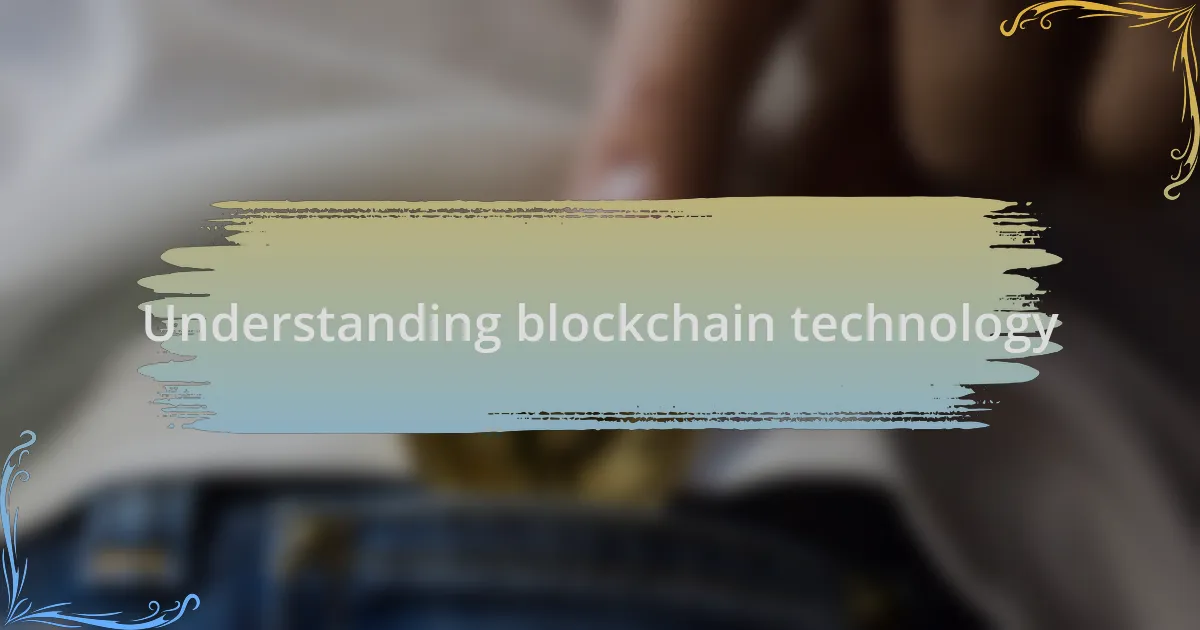
Understanding blockchain technology
Blockchain technology is often described as a digital ledger that records transactions across many computers. This means no single person or entity has control, right? I remember when I first learned about it, I was fascinated by the idea that everyone can see the same information and trust it because it’s secured by complex mathematics.
Imagine a chain of blocks, where each block holds a group of transactions. That’s literally what it is! When I realized this simplicity masked such a powerful mechanism, it struck me how it could change industries. For example, when I think about how we share information, I can’t help but feel hopeful about a future where we all have more control over our data.
The decentralized nature of blockchain means it’s harder for bad actors to manipulate information, which makes it unique and valuable. I often ponder how this could empower people everywhere, giving them more agency and security. Doesn’t that sound exciting?
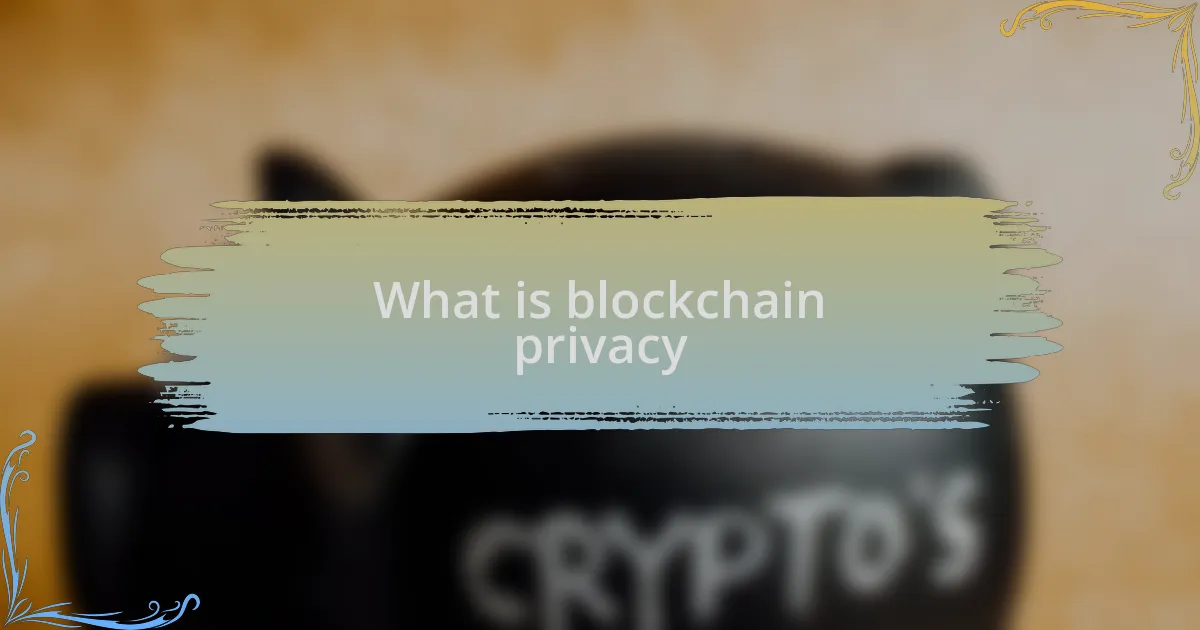
What is blockchain privacy
Blockchain privacy refers to the measures and features that protect users’ identities and transaction details within the blockchain network. In my experience, this concept is critical because while the blockchain is transparent, revealing transaction data to everyone, it also has unique privacy layers. I remember when I first realized that even though everyone can see the transaction details, it doesn’t mean they know who is behind them.
One fascinating aspect of blockchain privacy is the use of cryptographic techniques. These techniques, like hashing and public-key encryption, ensure that while data is available, the identity of users remains concealed. I often think about how amazing it is to have a system where your financial actions can be shielded from prying eyes while still being part of a larger, transparent network. Isn’t it incredible to find that balance between visibility and privacy?
Moreover, different blockchain projects have various approaches to privacy. Some use privacy coins, which employ advanced technology to obfuscate transaction details entirely. It reminds me of a time I learned about Monero, a privacy-focused cryptocurrency, and felt a sense of relief knowing that people could have secure transactions. I find myself wondering how essential blockchain privacy will be as our digital lives continue to evolve.
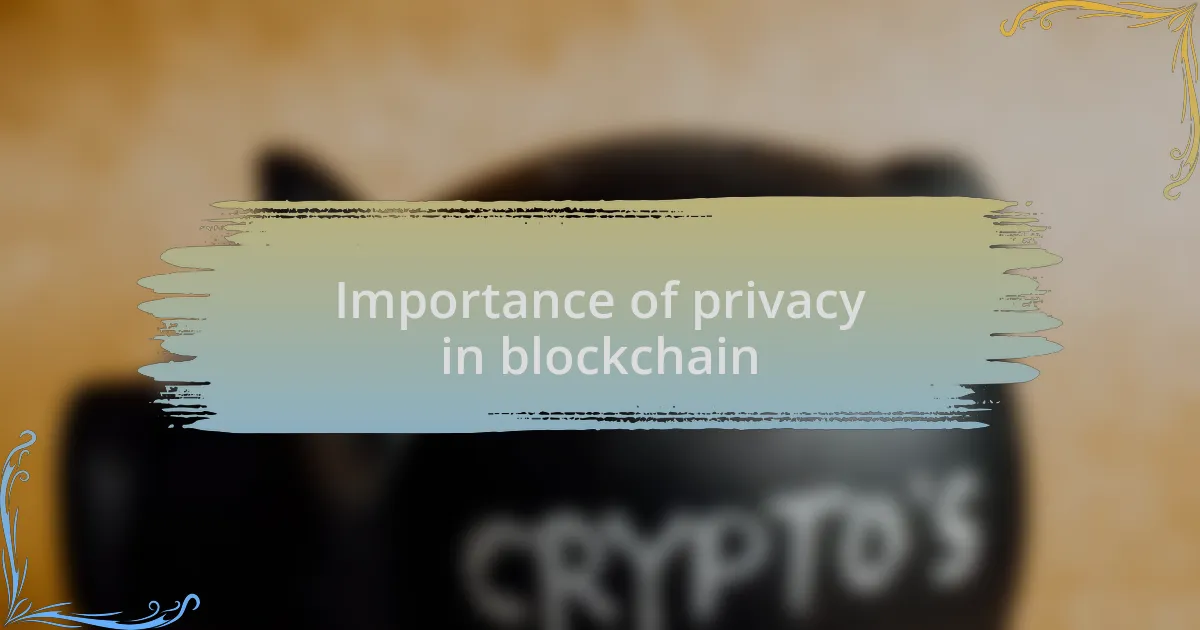
Importance of privacy in blockchain
Privacy in blockchain is crucial because it protects individual identities and fosters trust in the ecosystem. When I first interacted with cryptocurrencies, I was surprised to see how much information was publicly accessible. It made me wonder: how can we secure our assets if anyone can track our transactions? This concern highlights the importance of implementing strong privacy measures.
Consider this: in a world where data breaches are common, protecting personal information becomes essential. I’ll never forget the time I read about a prominent figure who had their financial transactions exposed due to a lack of privacy. It really hit home for me, as I realized how vital it is to maintain confidentiality on the blockchain. The more I learned, the more I understood that strong privacy layers can prevent unwanted scrutiny and potential threats.
The balance between transparency and privacy is a delicate dance. I often reflect on how these systems offer peace of mind—not just for me but for everyone participating in cryptocurrencies. It’s reassuring to know that my financial choices can remain discreet while still being a part of an open network. When you think about your own transactions, don’t you want that same sense of security?
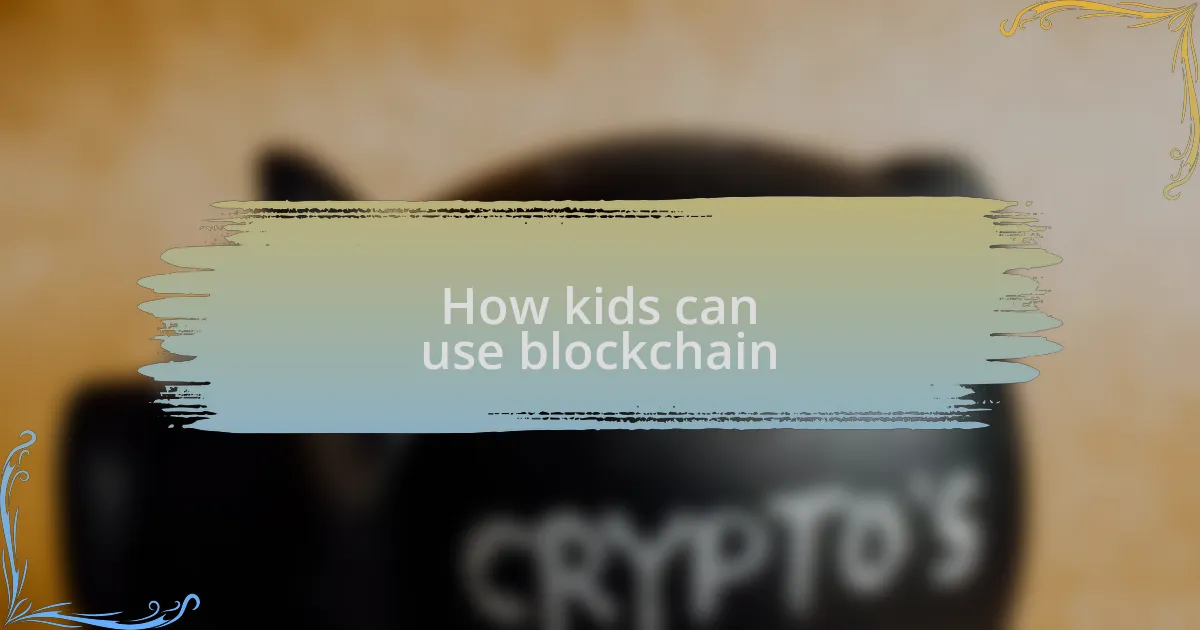
How kids can use blockchain
Kids can use blockchain in creative ways that go beyond traditional learning. For instance, I remember working with a group of young learners to set up a small blockchain project where they could record their achievements. It was amazing for them to see how their progress could be stored securely, giving them a sense of ownership over their accomplishments. Have you ever wondered how empowering it might feel for kids to manage their own digital trophies?
Engaging with blockchain can also spark interest in cryptocurrency savings among kids. I once encouraged a friend’s child to save a small amount of crypto as a fun way to learn about concepts like value and investment. The excitement on their face when they saw their savings grow was priceless! It helped them appreciate the importance of financial responsibility early on.
Moreover, kids can participate in blockchain-based games where they earn tokens for completing challenges. This really connects play with learning, as they not only have fun but also grasp fundamental concepts about digital economies. I often think about how rewarding it is to witness their enthusiasm when they collect and trade these tokens, making them feel like real entrepreneurs. Isn’t it delightful to watch kids explore technology hands-on?
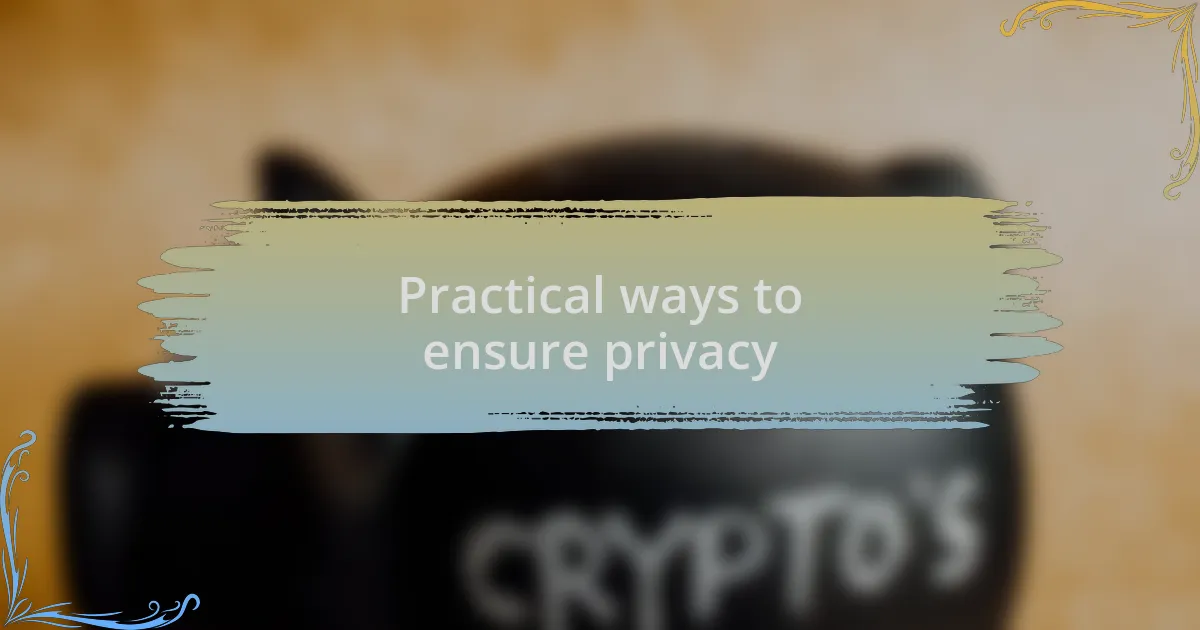
Practical ways to ensure privacy
When it comes to ensuring privacy on blockchain, one of the most practical steps is learning about and utilizing privacy-focused wallets. In my experience, using a wallet that emphasizes user privacy, like a non-custodial wallet, can give users more control over their personal information. Isn’t it reassuring to know that you can manage your assets without a third party tracking your transactions?
Another crucial aspect is to be mindful of the information shared publicly. I recall a moment when I shared too much personal detail in a forum, thinking it wouldn’t matter. Realizing later how easy it was for others to connect that information with my blockchain activities was an eye-opener! It’s important to think before you post—do you really want to leave breadcrumbs of your identity on a public ledger?
Lastly, exploring decentralized applications (dApps) that prioritize security and privacy can be incredibly useful. I loved introducing my younger cousin to a fun dApp game that was transparent about data usage. Watching her navigate it, I explained how these platforms can offer a layer of anonymity compared to traditional applications. Have you ever noticed how simple choices can make a big difference in protecting your privacy online?